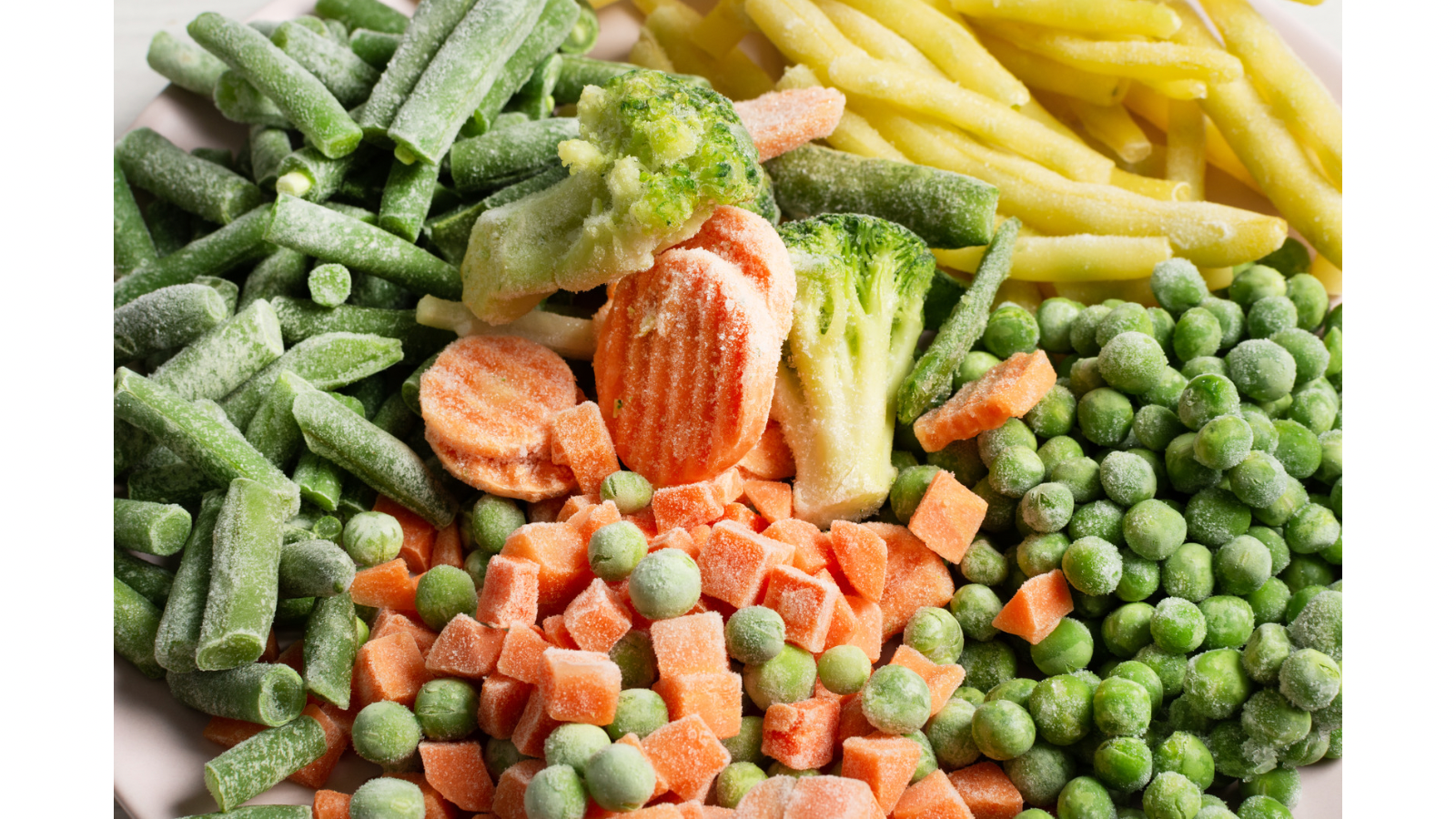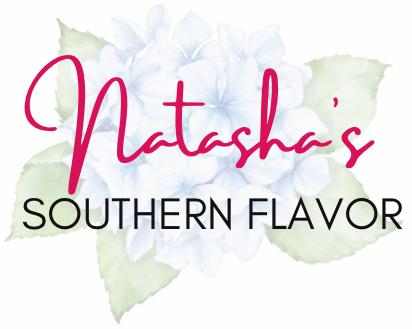Why You Should Cook With Frozen Vegetables
This post may contain affiliate links.
Are you tired of buying fresh vegetables only to have them go bad in a few days? Do you want an easy and convenient solution to adding more veggies to your meals? It may be time to try frozen vegetables.

While most people generally prefer fresh veggies, in truth, frozen vegetables can be just as healthy (if not more so) and offer a variety of benefits. This article will explore why you should cook with frozen vegetables and how to make the most of them in healthy meals. So grab a bag from your freezer aisle and get cooking!
Nutritional Value
Frozen vegetables are an excellent option for those looking to add more nutrients to their diet.
Some studies have shown that frozen veggies can be just as nutritious as fresh produce. One reason is that frozen vegetables are often picked and immediately flash-frozen at peak ripeness. This means they retain all their nutrients instead of losing them during transportation or sitting on store shelves.
Additionally, due to the preservation process, frozen vegetables may have more vitamin and mineral levels than fresh ones. For example, freezing broccoli has been found to increase its vitamin C content.
It’s important to note that not all frozen vegetables are created equal in terms of nutritional value. It’s best to opt for plain varieties without added sauces or seasonings, which can be high in sodium and other additives.
Incorporating frozen vegetables into your meals is an easy way to boost your nutrient intake in healthy meals without sacrificing taste or convenience.
Are Frozen Vegetables Healthy?
Many shoppers ask themselves this when considering whether to buy fresh or frozen produce. Frozen vegetables are just as healthy as fresh produce since they retain all their nutrients and vitamins.
In fact, some studies have shown that certain nutrients may be even more abundant in frozen vegetables than when fresh due to the preservation process. For example, vitamin C levels can decrease after harvesting but remain stable in properly stored frozen vegetables.
It’s also worth noting that because frozen veggies last longer than fresh ones, you’re less likely to waste food by letting it spoil before using it.
Are Frozen Vegetables Better Than Fresh Ones?
One study published in the Journal of Food Composition and Analysis found no significant difference between frozen and fresh broccoli’s nutrient content. Frozen vegetables are also usually less expensive and can be preserved longer than their fresh counterparts.
Another advantage of using frozen vegetables is convenience. The frozen foods are already prepped and ready to use straight from the freezer, saving time when cooking meals during busy weeknights.
Of course, there are some downsides to using these frozen foods too. Some may contain salt or other preservatives – so it’s important to read labels carefully when shopping for them. Additionally, texture can be an issue; unlike fresh veggies, certain types might become mushy or lose flavor after thawing. However, you can prepare these veggies in certain ways to regain their texture, especially if they’re the main content of the meal.
Ultimately, whether you choose to cook with fresh or frozen veggies often depends on personal preference – but don’t overlook the many benefits of frozen ones.
Benefits of Frozen Vegetables
Here are five benefits of choosing frozen veggies:
- Nutrient Retention: Frozen vegetables are often picked at the peak of their ripeness and flash-frozen soon after, which helps to preserve their nutrient content.
- Convenience: With pre-cut and pre-washed options available, cooking with frozen vegetables is incredibly convenient. They also have a longer shelf life than fresh veggies, allowing you to stock up without worrying about spoilage.
- Cost-Effective: Buying frozen vegetables in bulk can be much more cost-effective than purchasing fresh ones regularly throughout the week.
- Versatility: Frozen veggies can be used in various dishes, including stir-fries, soups, stews, and casseroles – making them a versatile ingredient for any meal.
- Year-Round Availability: Since they are not subject to seasonal availability like fresh produce, you can easily find your favorite varieties all year long.
Best Frozen Vegetables To Buy
Many options are available when choosing the best frozen vegetables to buy. However, not all frozen vegetables are equal in quality and nutritional value.
Here are some of the best frozen veggies to consider adding to your grocery list:
- Broccoli – This cruciferous vegetable is rich in vitamins C and K, fiber, and antioxidants. While broccoli florets start to spoil after just a few days in the refrigerator, they retain their nutrients when frozen.
- Peas – Peas are tiny green gems packed with protein, iron, folate, and vitamin C. It’s easy to toss frozen peas into soups, sauces, or even salads because they’re just as nutritious as their fresh counterparts.
- Spinach – This leafy green contains high levels of iron, calcium, magnesium, potassium, and vitamins A and C. When frozen, it can retain higher levels of folate than fresh ones. Also, buying frozen spinach is significantly easier than cleaning and cutting green spinach yourself.
- Cauliflower – Cauliflower is a great low-carb veggie that’s an excellent source of vitamin C and fiber while being low on calories. It is so easy to prepare because of the snap-freeze process involved.
- Corn – Corn is one of those vegetables that are actually better for you frozen than fresh. Sweet corn is a staple of classic frozen vegetable medleys. Fresh corn contains 6.26 grams of sugar per 100 grams compared to 3.36 grams when frozen.
When buying frozen mixed vegetables, always look at the ingredient label to ensure they don’t contain added sugars or preservatives that might compromise their nutritional value. Choose brands that flash freeze their products rather than those coated with sauces or spices for maximum freshness.
Lastly, remember that incorporating these into your meals can bring variety into your diet while helping you save time since they require less preparation than fresh foods.
How To Make Your Own Frozen Vegetables
Making your own frozen vegetables is a great way to save money and ensure you always have fresh produce. Plus, it’s incredibly easy.
- The first step is to choose which vegetables you want to freeze. You can use any vegetable that freezes well, such as broccoli, carrots, green beans, or green peas.
- Next, thoroughly wash the broccoli cuts or other vegetables and cut them into bite-sized pieces. Blanching is recommended before freezing – this helps preserve the color and texture of the veggies.
- To blanch the whole green vegetables, simply boil them for 1-3 minutes (depending on the type of vegetable), then immediately transfer them to a bowl of ice water to stop the cooking process.
- Once blanched (if necessary), pat dry with paper towels and lay out in a single layer on a baking sheet lined with parchment paper. Place in the freezer until completely frozen.
- Transfer your frozen vegetables into freezer bags or containers labeled with their contents and date. They will keep for up to 8 to 12 months in the freezer.
Methods of Cooking Frozen Vegetables
Cooking with frozen vegetables is incredibly versatile, as one can use many different methods of preparation based on your preferences and needs.
- Instant Pot: Steaming the veggies in an instant pot is one option. This helps retain their nutrients while producing a tender texture. Throw them in some butter sauce and enjoy.
- Oven: Another method is roasting in the oven, allowing for a crisp exterior and tender interior.
- Air Fryer: You can air fry some frozen veggies like okra or Brussels sprouts straight from the freezer. Sprinkle cooking oil and spices before throwing them in your air fryer to make them tasty and crunchy.
- Sauté/Fry: Sautéing or frying frozen vegetables with garlic or other seasonings in a pan provides an easy and quick way to flavor your dish.
- Boiling: You may also choose to boil your veggies, although this method can lead to the loss of some nutrients.
- Grill: Grilling is another great option for adding smoky flavor without sacrificing nutrition. Simply toss the frozen veggies in oil and seasoning before putting them on the grill until they’re cooked through.
- Stir-Fry: You can use frozen vegetables in stir-fry dishes by thawing them out slightly before adding them to a hot pan with other ingredients like meat or tofu.
What To Eat With Cooked Frozen Veggies
Cooking with frozen vegetables is a great way to ensure you always have healthy options. But what should you eat with your cooked frozen vegetables? Here are some ideas.
- One option is to use them in a stir-fry. Cook some rice or noodles, add your favorite protein and seasoning, and then add the frozen veggies for an easy, filling dinner.
- Another idea is to use them as a side dish. Simply season the veggies with salt, pepper, garlic powder, or any other spices of your choice. Then pair them with chicken breasts, fish, steak, or pulled pork for an easy weeknight dinner.
- You can also use butternut squash or mixed veggies as toppings for flatbread. Add tomato sauce and butter cheese to the crust before sprinkling on the veggies for an extra burst of flavor.
- Add frozen vegetables into soups or stews if you want something light yet filling. It’s an easy way to get more nutrients into your diet while keeping you full throughout the day.
Don’t be afraid to experiment. Mix different flavors and textures by combining different types of cooked frozen vegetables. Get creative and find new ways to incorporate these nutritious foods into your meals.
Conclusion
The nutritional benefits and added convenience of cooking with frozen vegetables is clear. While fresh vegetables have other unique advantages, such as flavor and texture, frozen vegetables offer a great alternative when fresh produce is unavailable or out of season. Plus, with so many different types of frozen veggies available today, there’s no shortage of options for incorporating them into your meals.
Here are some wonderful recipes that use frozen vegetables:
This article originally appeared on Wealth of Geeks.
Tao Oredola
Tayo is the founder of Low Carb Africa, where she shares healthy, low-carb dishes with an African twist. She is passionate about teaching people how to cook drool-worthy dishes while losing weight and living their best lives. Tayo’s recipes have been featured on MSN, Women’s Health, Parade, Yahoo News, and other online publications.
